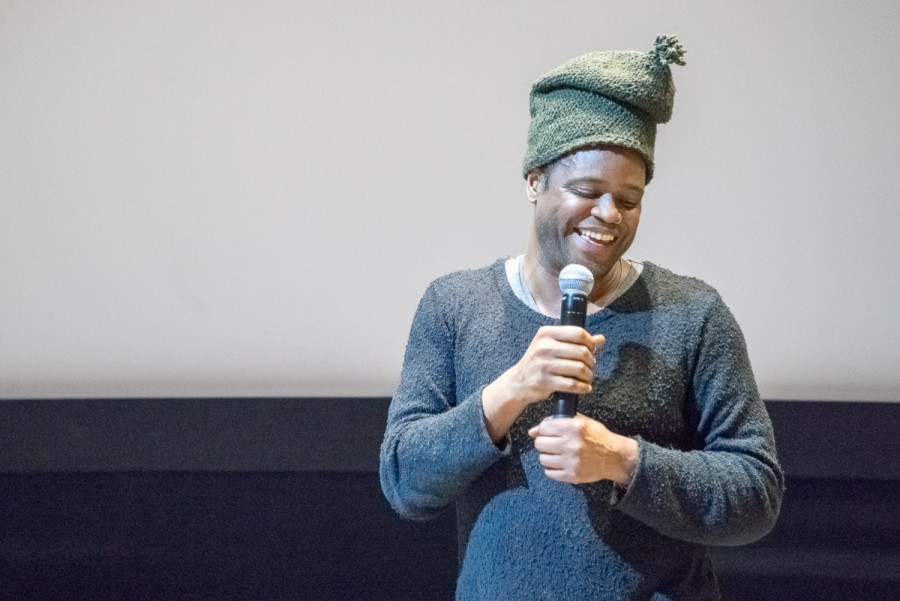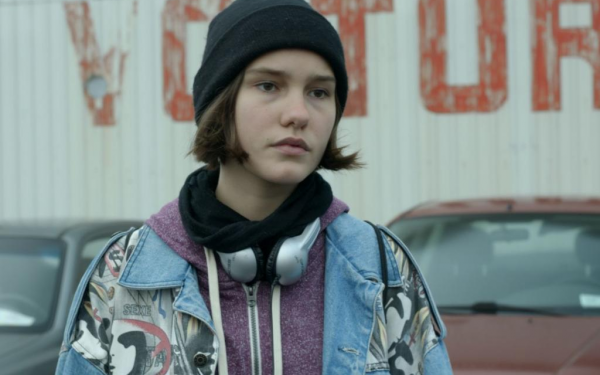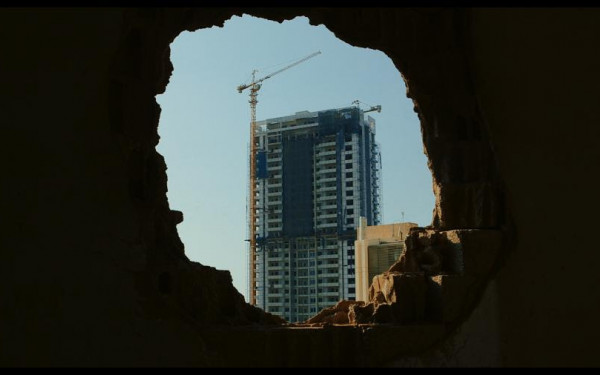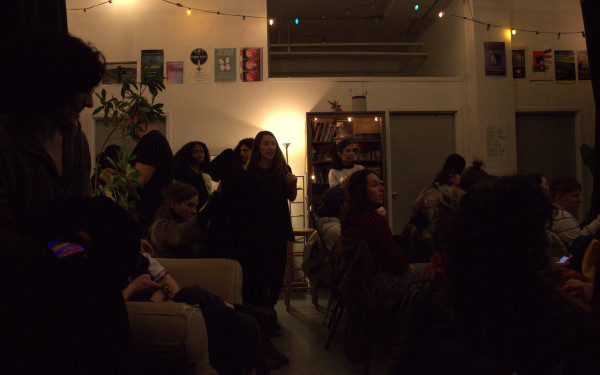Film Review: Unarmed Verses Demonstrates the Subtleties of Institutionalized Racism and Sexism
Award-Winning Documentary Details Young Girl’s Experience With Identity and Gentrification
“Poetry to me is an unofficial language that speaks to your soul,” recites Francine Valentine, the 12-year-old protagonist of the documentary, Unarmed Verses.
She analyzes Edgar Allan Poe’s The Black Cat with a remarkable depth demonstrated in practically every scene.
The film opens with a sequence of closeups of her face and hands, the small cramped kitchen where she is working, and with a long list of chores on the wall.
You can tell that she’s a child, but the maturity and intelligence she demonstrates would seem to reflect someone much older and wiser than 12. This is only the first time Francine will stun you with her depth throughout the film.
Throughout the film, she works on developing a song through Art Starts, an organization that aims to strengthen communities through art. The first line is: “It’s a beautiful day outside but you’d rather sit around and cry.” The other kids and teenagers who participate in Art Starts are supportive and empowering towards Francine.
Unarmed Verses, which was screened by Cinema Politica’s Concordia chapter, is a 2012 film directed by Charles Officer. It paints a tender portrait of Francine, her family, and her community as the area in Toronto that they were living in was facing gentrification. Because of this, the residents were unsure of where to go and most were faced with potentially having to relocate.
The climax of the film occurs inside of the recording studio where shy Francine, with some coaxing, records an original song that she’s been developing over the course of the film.
She is nervous and unsure but she triumphs joyfully nonetheless.
Francine lives with her father, siblings, and grandmother. Her grandmother adopted two brothers named Kenny and Ryan, both of whom are autistic.
The documentary won the 2017 Hot Docs award for Best Canadian Feature Documentary.
The film’s revolves around the themes of the power of art and community, youth, and race.
Francine was born in Antigua but immigrated to Canada alone at the age of four. Her father lacked the funds needed to send more than one person at the same time, but sent her nonetheless so she could have the chance to receive a stronger education.
Francine’s mother still lives in Antigua, and their lack of communication is shown to be an understandable source of sadness and anxiety to Francine throughout the film.
Francine explains how her love of jazz is from her father, who is shown singing happily in one scene. She and a number of other children who live in Villaways participate in Art Starts.
Francine comes across as charmingly earnest, sweet, tender, and maternal. She is also quiet and self-conscious, like most unusually self-aware children, but most especially in the case of girls of colour. She is also shown to be a leader through her tenderness and inclusion of other children. Francine is an example of how young girls of colour show strength and develop character through their softness.
Villaways is a public housing complex whose residents are being given the option of returning to a supposedly new and improved community after a period of four years have passed.
Francine explains that her family is struggling to pay rent already. “They are building condos, we can’t afford to even rent a condo. I don’t think we can afford to come back,” she explained in a voice over.
The selection process that determines how residents are assigned their new homes is shown to be confusing and random. Francine is shown explaining certain details to her grandmother, a common experience for immigrant children.
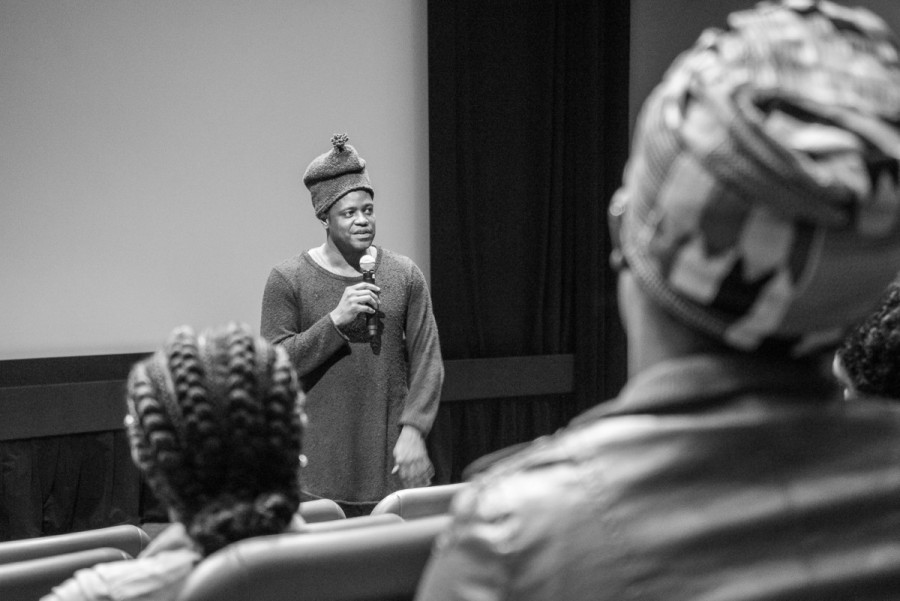
There is also the fact that some families will look different after four years, as teenagers grow up and leave their childhood homes.
Francine reflects on how the politicians pushing this project seem to think that they are improving a community seen as worn down and dirty. She expresses sadness at the idea of Villaways ceasing to exist.
Throughout the movie there are scenes that consistently demonstrate that the vast majority of Villaway’s residents are people of colour, many Black and Brown women wearing hijabs and dressed modestly.
The film uses quiet music poetically and intensely to highlight and increase tension. The music has the feeling of being a secret message from filmmaker to subject, one that the viewer can only attempt to understand. This serves to strengthen the gentle tension throughout the film that makes it impossible to turn away from.
Another demonstration of Francine’s maturity and the powerful intersection of art and community takes place in an exhibition of Jean-Michel Basquiat’s work. She volunteers to give a thoughtful analysis as her classmates regard her with admiration.
There is something wonderfully ironic and meta about watching the analysis of art in another piece of art that is thematically about the power of art.
Intersectionality and Oppression in Unarmed Verses
I think someone who lacks a strong understanding of how intersectionality and structures of oppression work might have trouble picking up on the subtleties of this movie.
For example, Francine is mentored by an older woman named Carlene from Art Starts.
There is a scene where Francine’s grandmother and Carlene are sitting down together and her grandmother asks Carlene to watch out for Francine.
Watching their facial expressions was fascinating as there seemed to be an unspoken understanding of their shared experience of being Black women.
While I am not a Black woman, I felt as though I could identify with some of Francine’s lack of confidence. I think that comes from existing in a world that is not welcoming to young girls of colour, which is exactly what this film will smack you in the face with.
How many movies, fictional or not, feature a Black girl as the main character? Or any girl of colour for that matter?
There is a shot of Francine’s bedroom, where the camera lingers over a picture of two women, one white and the other East Asian. Both are smiling and silky haired.
The word beautiful is written beside them. There is also a school photo of Francine tacked up close by. The photographed Francine is declared “stupid” in the same black marker.
She expresses that, “if you don’t do something, you can’t fail at it,” a few scenes before the recording is slated to happen. There is a sense that Francine strives for perfection and excellence.
The film poses the question: to what extent are those qualities innate to her personality or are they qualities imposed on her as a result of living in a racist and sexist society?
Unarmed Verses is a beautiful piece of cinematographic work, that features a fly-on-the-wall style of documenting as opposed to question-and-answer formal interviews.
This film speaks to the power of community in numerous ways and also points to the idea of how the community and art are intertwined.

